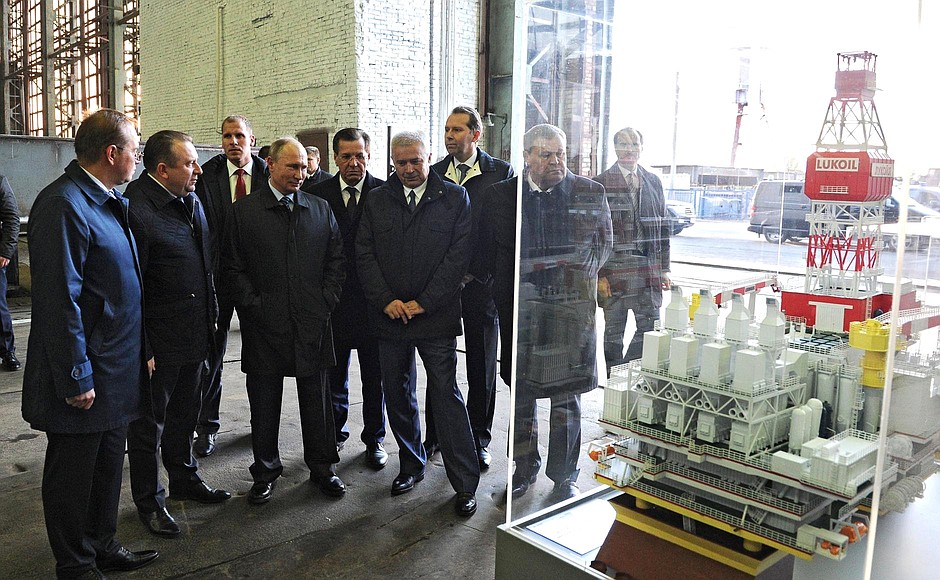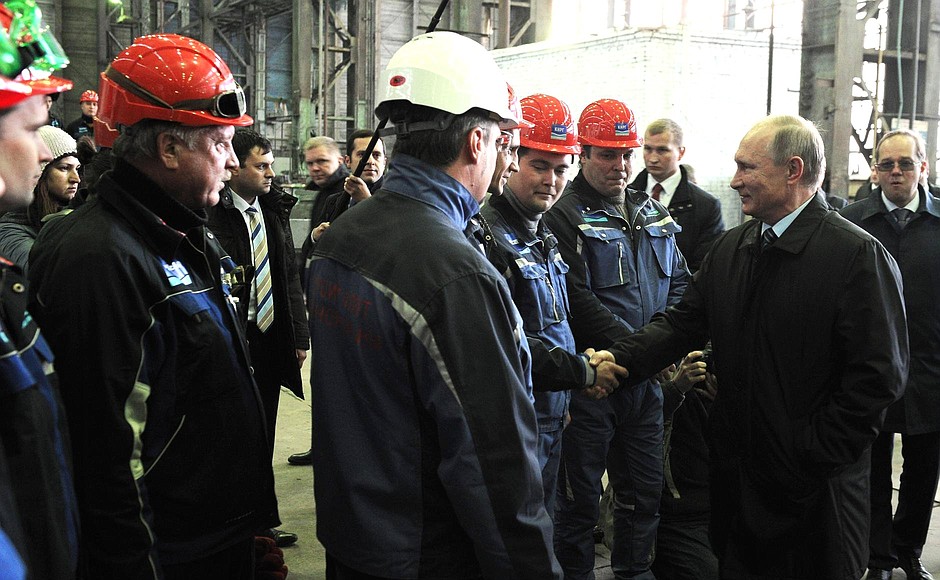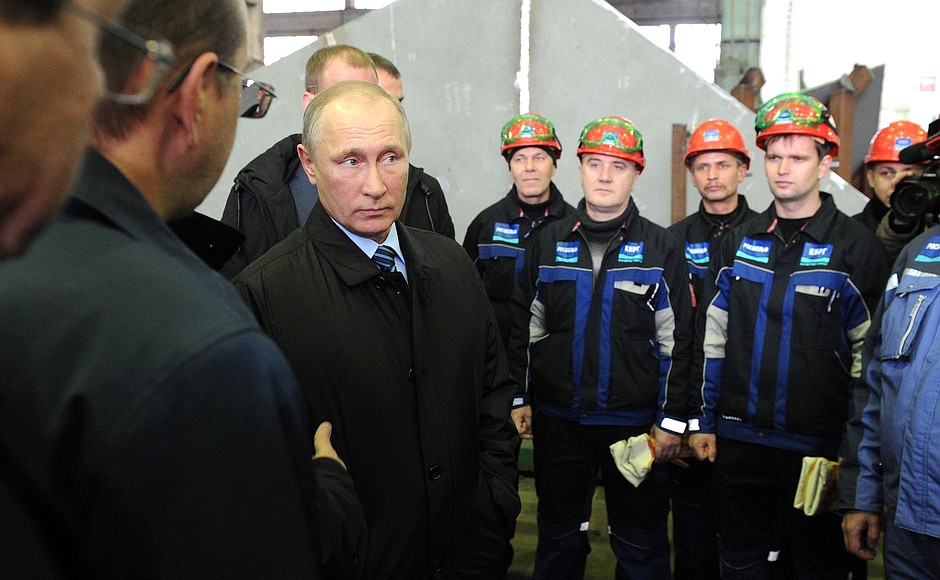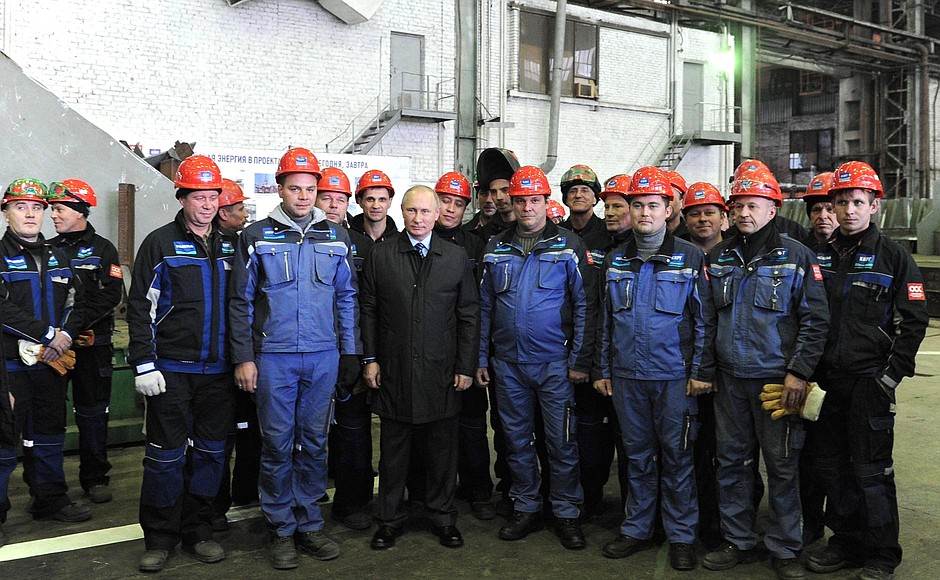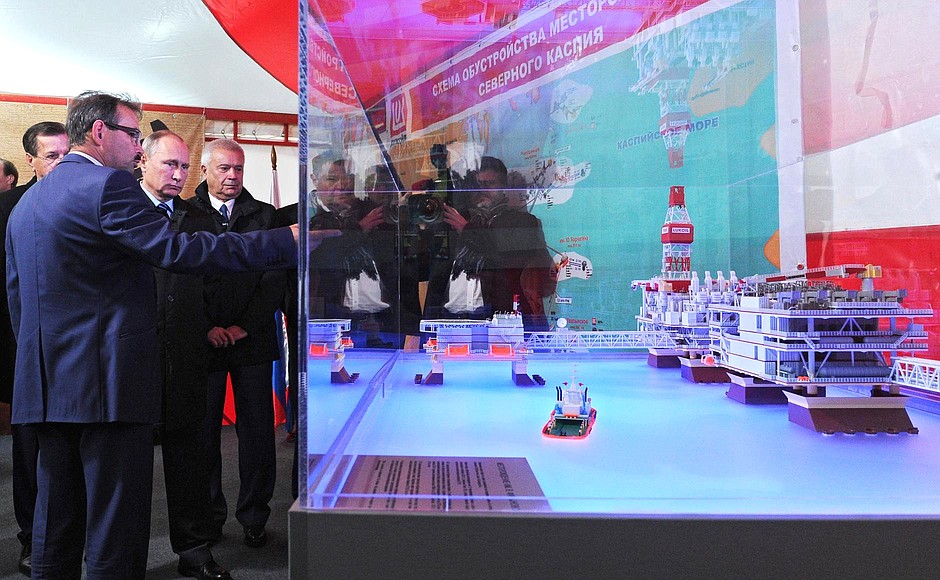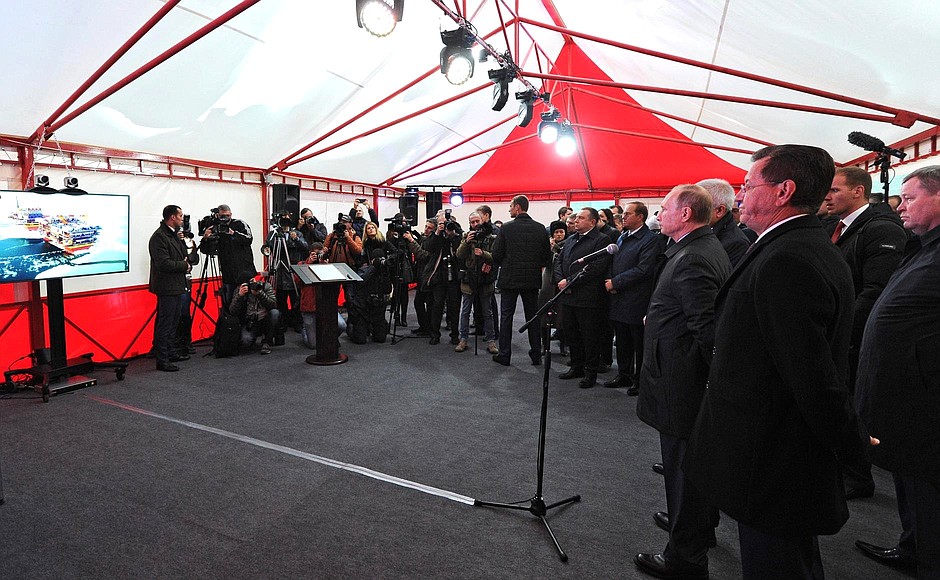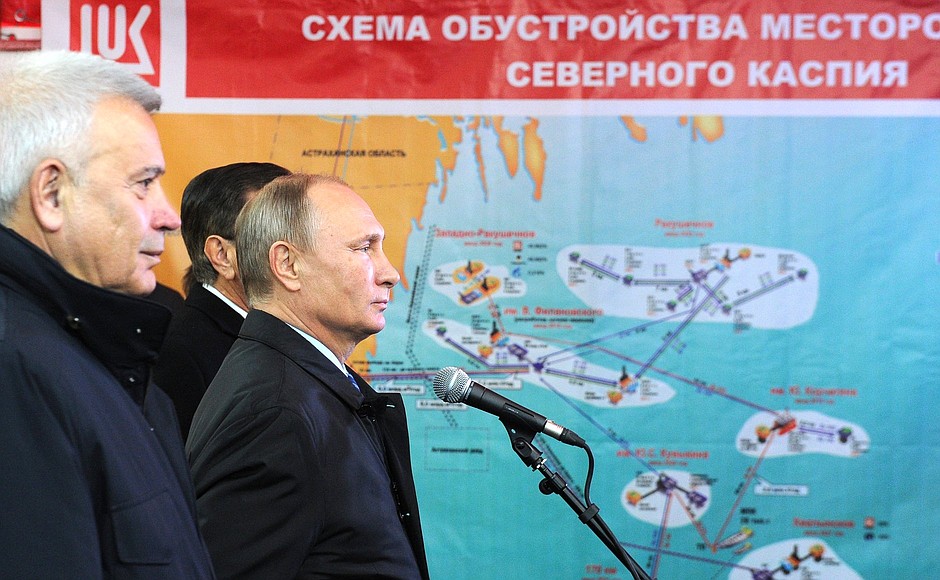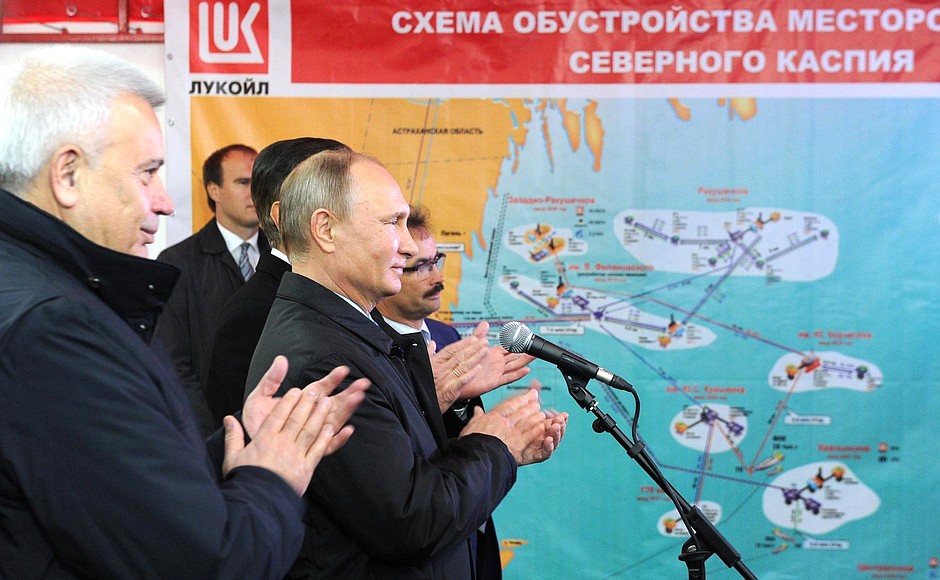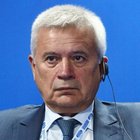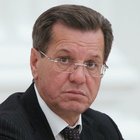The field was discovered by LUKOIL in 2005. The ceremony was also attended by LUKOIL CEO Vagit Alekperov and Governor of the Astrakhan Region Alexander Zhilkin.
Earlier, during his visit to the Astrakhan Shipbuilding Production Association, the President toured the complex where supporting blocks are made for ice-resistant stationary platforms and learned about the production process. He also briefly spoke with workers.
The Astrakhan Shipbuilding Production Association is a production unit of the Caspian Energy Group. The company provides engineering, procurement, construction, and equipment installation services for developing off-shelf oil fields. The association boasts the region's largest floating dock with a lifting capacity of 5,400 tonnes and a non-propelled floating crane with a lifting capacity of 1,600 tonnes.
* * *
President of Russia Vladimir Putin: Good afternoon,
I would like to congratulate LUKOIL and Mr Alekperov [LUKOIL president], Mr Lyashko [LUKOIL-Nizhnevolzhskneft general director], and everyone on your large team – shipbuilders and related specialists who have worked to launch the commercial operation of the Filanovsky oil field.
This is a serious, significant step in developing Russia's oil and gas industry, and for the Caspian Sea region it offers the promise of further development – not only its oil and gas sector but related enterprises as well.
Our colleagues were just mentioning that there are over one hundred enterprises, which is a very good indicator – good quality, a large staff and work done on schedule. It’s also very important that the work is expected to go on for decades to come. This means there will be orders for steel workers and those who manufacture pipes and cables. And of course, this makes a significant contribution to the development of the national economy as a whole.
I sincerely congratulate you and wish you all the very best.
Nikolai Lyashko: Thank you very much.
Mr President, we welcome you on the spider deck of the Filanovsky offshore ice-resistant stationary oil platform.
Present here are members of the drilling crew who perform drilling work on this platform, and the staff of the oil and gas production unit and its head Oleg Kruglov.
We are near the mouth of the production well #7. This platform will have a total of 11 wells. The daily oil yield at each well is forecast at up to 3,000 tonnes. Each well is equipped with hydraulic isolation valves, which allow for remote control of these valves and the ability to remotely shut them off in case of emergencies.
To ensure safety in emergency situations, safety valves installed at a depth of 200 metres in each oil well are automatically activated.
At present, over 15,000 sensors – gas, smoke and fire sensors – are installed on our platform to ensure its safe operation. In addition, 156 cameras, including night vision cameras, are in place to monitor the production process and the Caspian around the clock.
All platforms of this complex are equipped with technical protection systems to ensure protection against external threats, including threats of a terrorist nature.
All of LUKOIL’s sea-based facilities are operated under zero waste dumping standards. That is to say, all industrial and domestic waste is taken ashore by support vessels for subsequent disposal.
Mr President, all systems and technological equipment of the Vladimir Filanovsky offshore ice-resistant complex are ready to go. I request your permission to put the Vladimir Filanovsky oil field into operation.
Vladimir Putin: Mr Lyashko, you just spoke about environmental safety procedures. Could you expand a little on how the system works?
Nikolai Lyashko: As for environmental and industrial safety, I already spoke about the number of detectors. Our detectors are installed on all platforms and all premises. In case of emergency at any place – in terms of temperature, gas concentration or fire – the alarm goes off and within just 12–13 seconds, if another sensor goes off again, an alarm is sounded and the personnel leave the premises. The exits are closed, fire-fighting systems, foam fire suppression systems are activated, safe evacuation is ensured, and the fire is extinguished.
Also, a military rescue vessel is on duty at all times on and around the platform. It is fully equipped to contain oil spills and, in an emergency, can clear up oil spills.
Our contractors are on duty around the clock all year round on the Caspian shore to respond to emergencies and clean up oil spills.
Vladimir Putin: In the drilling process – when soil is lifted to the surface – is all of that packaged and carried ashore?
Nikolai Lyashko: We have a fully closed drilling cycle. There is a drilling riser, and drilling is conducted inside this conduit, which is installed at a depth of 120 metres. A drilling crew cleans everything up inside the conduit. Nothing gets into the sea. All industrial waste is taken ashore by support ships for subsequent disposal. Nothing gets into the sea.
Vladimir Putin: Excellent.
Mr Lyashko, go ahead.
Nikolai Lyashko: Thank you.
<…>
Mr President, the Filanovsky field is now operational.
Vladimir Putin: Congratulations!
Nikolai Lyashko: Congratulations, everybody! Thank you!
Vladimir Putin: Thank you. Good luck. There is plenty of work to do – for the next 50 years or so. I hope that we will continue working just as actively and with the same quality.
All the very best!
Nikolai Lyashko: We are ready to work!
